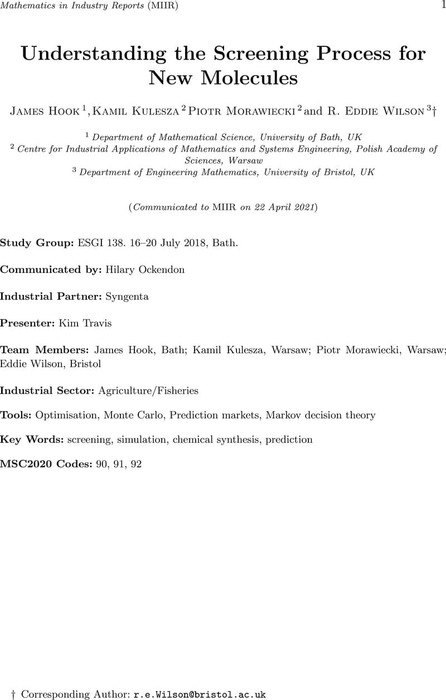Abstract
The mathematical modelling of the screening cascade used in the selection of new herbicidal molecules is studied. The challenge in this problem is uncertainty in assessing the efficacy of each molecule in small-scale trials. Three distinct approaches are developed: (a) where a predetermined proportion of the best ranking molecules in each stage are forwarded to the next (analysed by a combination of Monte Carlo and conditional probability methods); (b) an adaptive screening method, which employs Markov Decision Processes that do not require the noise model to be known in advance; and finally (c) the potential use of prediction markets is scoped.
Content


